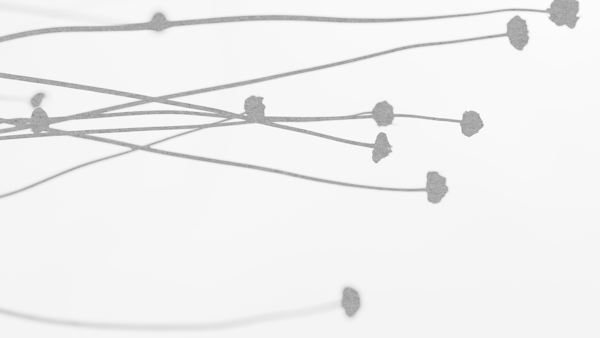There Is No Cure for Your Cognitive Dissonance

We’re living through a moment of dizzying contradiction.
Our news feeds are saturated with images of the most horrific violence and suffering. Doom-scrolling through the worst of it, you’d be forgiven for wondering whether human progress is illusory. With ongoing wars in Europe and the Middle East, history can look like an endless cycle of barbarism and indifference. We may have built cities, written symphonies, and landed on the moon, but our recurring atrocities are so egregious they just might dwarf the intermittent good.
Keep scrolling, however, and you’ll stumble upon an alternative narrative, one that showcases humanity in a very different light. This story sees us come together in the face of a common and unifying existential threat: the perils of unregulated AI. Last week’s international AI Safety Summit at Bletchley Park in the UK—where Alan Turing famously decrypted Nazi Germany’s secret communications during World War II—was widely hailed a success. Convening the key AI powers, including China, the summit kickstarted worldwide collaboration to address AI’s risks, producing a foundation for broader future cooperation. In this version of civilization’s story, we look rational, peaceful, and prudent, able to put aside our differences to tackle a common challenge together.
Trying to keep apprised of these diametrically opposed narratives may feel like trying to look at two corners of a room simultaneously. The barbarism of war at one end, the exponential advancement of technology at the other. The impotence of global diplomacy here, the possibility of global cooperation there. The cognitive dissonance—not to mention the migraines—can be extreme.

The Age of Tech Populism
In times of rapid progress, the best thinkers are often slow, circumspect, and reflective. They recognize the complexity of the situation they’re dealing with; they have a nuanced understanding of competing interests and sense the scope of everything they don’t know. They resist the arrogance of assessments and predictions, and often refuse to give an opinion in the short term. When, in 1972, Henry Kissinger asked Zhou Enlai about the impact of the French Revolution, the Chinese premier famously replied, “It’s too early to tell.” Or take note of Alan Turing’s humility. The brilliant mathematician saw ingenuity as something frail and imperfect. “If a machine is expected to be infallible, it cannot also be intelligent,” he once said.
If only today’s AI pioneers showed the same lack of ego.
Instead, what we’re witnessing is an AI revolution spearheaded by people who want to move forward with no holds barred—a group that sees any impediment to technology’s ascendancy as unnatural and wrong, and envisions a future where they can profit from their inventions without penalties or constraints.
Meet the new “techno-optimists.” The most vocal among them is arguably billionaire investor Marc Andreessen, whose recent Techno-Optimist Manifesto lambastes the efforts of sustainability, social responsibility, tech ethics, and human rights, calling each a check on technology’s advancement and thereby a threat to human progress. For him, the unrestricted development of technology is the only way forward, sure to bring happiness and abundance to all. Ezra Klein, in a scathing New York Times column, calls Andreessen’s pseudo-philosophy “reactionary futurism.”
Then there’s tech king Elon Musk, who keeps playing both sides of the game. He calls AI the greatest threat to humanity in one breath, while introducing Grok, a dangerously flawed “sarcastic” chatbot, the next.
You might dismiss the ravings of these tech-happy edgelords as adolescent fantasies, but that denies the uncomfortable fact that their predictions are becoming less fantastical by the day. And they have an advantage over those of us with nuanced concerns and questions about a transhuman future: Their message is as clear and confident as it is simple and simple-minded. They are the new populists of our era. As policy-makers, intellectuals, activists, and ethicists try to think slowly and carefully about the social, moral, and philosophical implications of what all this means, the techno-optimists are blazing ahead with blinders on.
Criticizing and regulating them won’t be enough—we need alternative visions for the future that are more compelling than theirs.
New Narratives: Metaphysics, Africa’s Rise, Collective Intelligence
We believe that this is exactly where the House of Beautiful Business can add value: By stimulating individual imaginations and creating new collective ones. Another future is possible, but it will only materialize if it is not just embraced intellectually but also felt intimately.
Specifically, we are looking to three sources of imagination:
First, a renewed interest in metaphysics. Instead of echoing the Silicon Valley tendency to hyper-optimize everything, organizations and their leaders have begun to turn inward and upward, from the Inner Development Goals to trailblazers such as Amy Elizabeth Fox, the co-founder and CEO of Mobius Executive Leadership and a speaker at our 2024 gathering in Tangier, who helps Fortune 500 leaders and teams hone their spiritual intelligence.
A second way forward is to replace the dominant Western narrative with narratives emerging from Africa, a continent whose impact on the future is growing fast. Africa’s growth isn’t only about its “youthquake” demographics (by 2050 every fourth person on the planet will be African), but also about its rising agenda-setting power. Urbanist and futurist Geci Karuri-Sebina, also a speaker in Tangier, proposes that we turn to decolonizing narratives so that Africa’s “traditions of griots, folklore, and speculation” can offer guidance on shaping better futures.
Finally, we are looking to the power of community and, specifically, to collective intelligence. House member and neuroscientist Hannah Critchlow argues that collective intelligence is evolving to trump individual intelligence. Communities can provide the structure and means for collective intelligence to emerge, becoming a vital locus for new ideas. In Tangier, we’re partnering with the School of Collective Intelligence at the Mohammed VI Polytechnic University, with the aim of inspiring participants to create new stories and link them to the world at large.
At the House of Beautiful Business, we sometimes have a difficult time describing the goals and dreams that unite us. They seem to exist less in the stuff they amount to, and more in the absences they suggest. Together we recognize political shortcomings, failing systems, burning forests, widespread inequality. Instead of feeling defeated and overwhelmed, we see in these gaps, voids, and inefficiencies the opportunity for rethinking and redesigning our future. There may be no immediate cure for our cognitive dissonance, but those discordant sounds can inform what we compose next.
Tim Leberecht & Martha Schabas

We Want to Give You Space

Goodbye Reality, For Real!

Can AI Heal Us?



